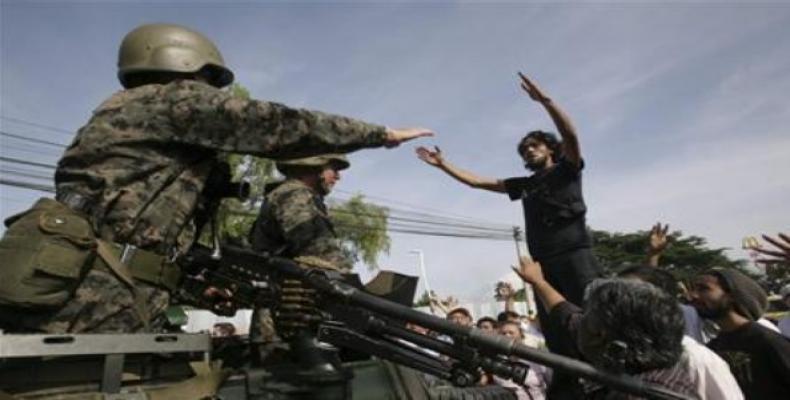Tegucigalpa, October 29 (teleSUR-RHC)-- The human rights violations carried out following the 2009 coup d'état in Honduras do not constitute crimes against humanity and therefore cannot be fully investigated by the International Criminal Court, the ICC prosecutor said on Wednesday.
The human rights violations committed in the aftermath of the military coup that toppled democratically-elected President Manuel Zelaya do not “amount to a policy to commit an attack against the civilian population,” prosecutor Fatou Bensouda stated.
As a result, the events of 2009 do not meet the internationally accepted definition of crimes against humanity, making them ineligible for a full inquiry by the ICC, Besouda said.
In 2010, the ICC began a preliminary examination to find out whether there was a “reasonable basis” to open a full investigation into the crimes committed following the coup d'état of June 28, 2009.
While the prosecutor found that the U.S.-backed military coup “developed a plan to take over power and assert control over the country” that resulted in killings, torture, rape and sexual violence against those who protested, it did not consider them to be “massive, frequent, carried out collectively with considerable seriousness and directed against a multiplicity of victims.”
The prosecutor added that “by no means does this decision minimize the crimes committed in Honduras or their impact on the victims. It should be recalled, however, that the Rome Statute's definition of crimes against humanity imposes strict legal requirements that distinguish this category of crimes from a context of general, chronic and structural violence.”
Zelaya, a member of the Liberal Party, moved to the left during his presidency, raising the minimum wage, negotiating land deals with campesino movements, and joining the Venezuelan-led regional energy alternative ALBA, in addition to opening the conversation on a constituent assembly.
Coup-backers accused Zelaya of attempting to manipulate the Honduran constitution to extend his presidency, which was limited to one term. Zelaya had ordered a non-binding poll on changing the constitution that would not have changed the fact that he could not run for re-election in the November 2013 general election.
The coup against Zelaya was widely condemned by the European Union, the Organization of American States, and countries across Latin America.


